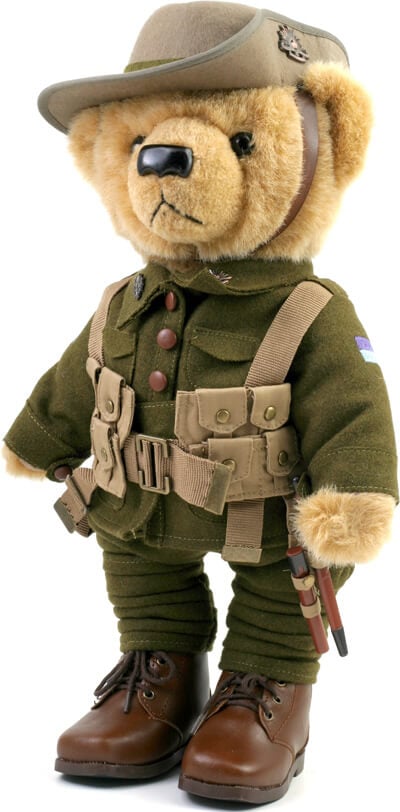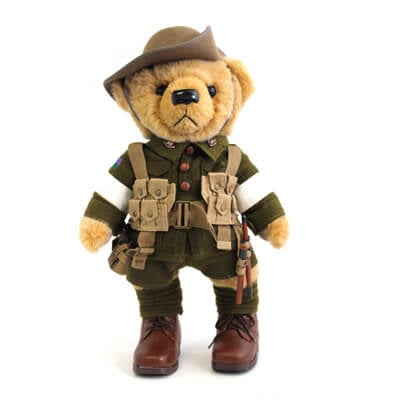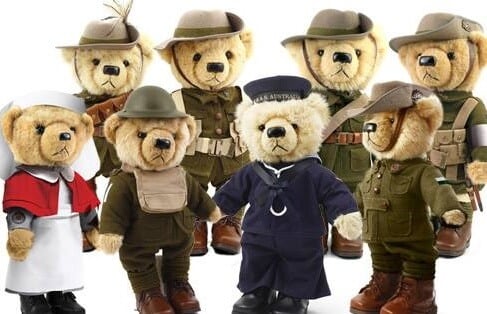
The Gallipoli Centenary Bear
Private Ernest Harvey helps us remember the special place Gallipoli holds in the hearts of all Australians. The courage and determination shown by the men of the Australian Imperial Force on this rugged Turkish peninsula gave rise to a sense of national identity, pride and spirit that has helped shaped Australia through the generations.
With Private Harvey, the Gallipoli Bear, we remember the 50,000 Australians who served at Gallipoli between 25 April 1915 – 20 December 1915.
The uniform he wears represents the standard dismounted troops’ uniform worn by the Australian Army since 1912. His webbing holds his water canteen, bayonet and helve (the handle for his entrenching tool). Although ordered to wear their field service caps for the landing many diggers chose to wear their iconic slouch hat or general service cap instead. Pte. Harvey wears the distinctive slouch hat worn by the Australian Army since 1913 with the left side pinned up with the 1904 pattern badge, the third design of the badge and the design which endured through both world wars.
Australians landed on the Dardanelles at what became known as Anzac Cove on 25 April 1915. The men established a tenuous foothold on the steep slopes above the beach but could not penetrate the heights dominated by the waiting Turkish forces. During the early days of the campaign the Allied forces tried to break through the Turkish lines. Despite determined fighting Gallipoli settled into a stalemate.
In August a major offensive was launched and despite a decisive victory at Lone Pine by Australian Forces, the stalemate held and would continue for the remainder of 1915.
Ironically, the most successful operation of the campaign was the evacuation of tens of thousands of troops on 19–20 December. Using clever deceptions to disguise the withdrawal the troops quietly slipped off the peninsula under the cover of darkness without further casualties.
Australia paid dearly for Gallipoli. More than 26,000 Australian casualties were recorded, some 8,700 were killed. Yet, despite such a horrific toll, it is said that Gallipoli had no influence on the course of the war.




















